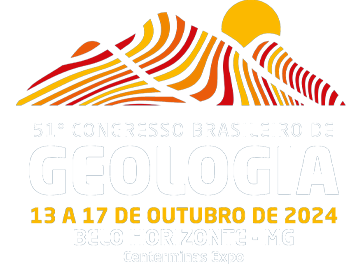Dados da Submissão
Título
Geospatial analysis of transmissivity and uncertainty in a semi-arid karst region
Texto do resumo
Aquifer properties, such as hydraulic transmissivity T and its spatial variability, are fundamental for sustainable groundwater exploitation in arid regions. Especially in karst aquifers, spatial variability can be considerable and the application of geostatistical methods allows spatial interpolation and mapping based on observations combined with the quantification of uncertainties. Moreover, direct measurements of T are typically scarce, while those of specific capacity Sc are more frequent. In this study, we establish the linear regression relationship between the logarithms of T and Sc measured at 51 wells in a semi-arid karst region in Northeastern Brazil. This relationship is used to estimate empirical values logTemp based on measurements of logSc at 269 wells. LogTemp values are found to be normally distributed with an isotropic variogram of sig-nificant nugget effect (attributed to local-scale karst features) and approximately 10 km range (attributed to larger-scale gradual changes in karst feature density). Ordinary kriging cross-validation indicates an optimum number of 25 neighboring wells for interpolation, which is used in Conditional Sequential Gaussian Simulation (SGSIM) to generate 500 realizations of logTemp with respective maps of standard deviations and probabilities of (not) exceeding threshold values. High-transmissivity areas mostly coincide with karstified river valleys, while low-transmissivity areas occur toward the edges where aquifer thickness decreases. The resulting transmissivity maps are relevant for optimizing regional water management strategies, which includes stochastic approaches where transmissivity realizations can be used to parameterize multiple runs of numerical groundwater models.
Palavras Chave
Aquifer; specific capacity; kriging; stochastic simulation
Área
TEMA 16 - Geoquantificação e Geotecnologias
Autores/Proponentes
Thiago Santos Gonçalves, Harold Rene Klmmer, Luiz Rogério Bastos Leal
